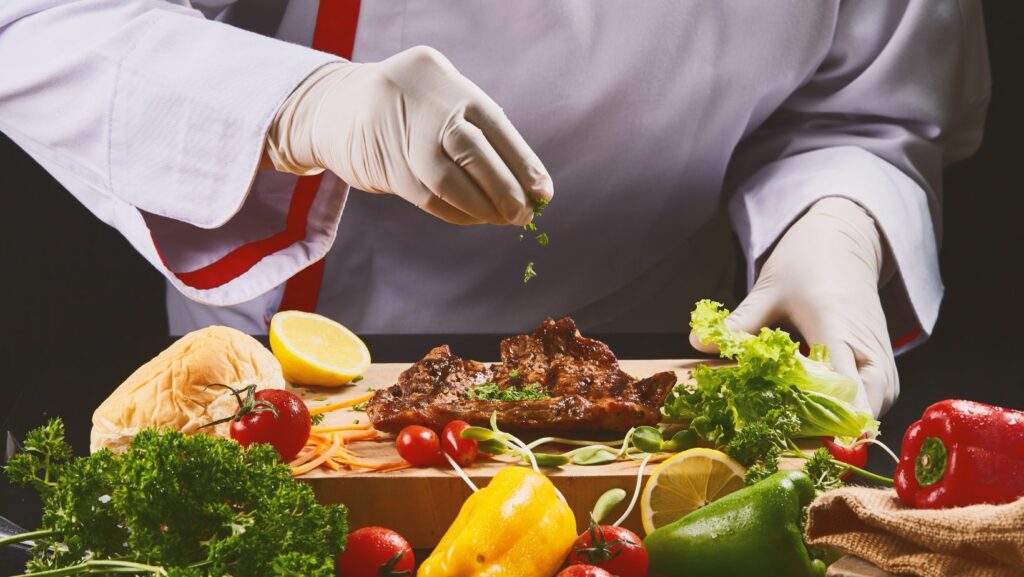Venturing into the culinary world for the first time can feel like stepping into a jungle without a map. It’s a world filled with exotic spices, diverse ingredients, and complex techniques. But don’t fret! This article is your trusty guide, ready to navigate you through the basics of cooking.
Mastering the art of cooking isn’t about nailing fancy recipes from day one. It’s about understanding the fundamentals, learning to improvise, and embracing your mistakes. Whether you’re a college student living on your own or a newlywed wanting to impress your spouse, these beginner-friendly cooking tips will set you on the right path.
So, roll up your sleeves, ignite your stove, and let’s start this delicious journey together. Because cooking, like any art, is best enjoyed when shared.
Cooking Tips For Beginners

Let’s embark on a culinary journey aiming to boost the cooking skills of beginners. This segment, steeped in informative content, provides essential cooking tips. Covering topics such as understanding kitchen tools and learning the art of following recipes, it supports the nascent cook in navigating the kitchen confidently.
Mastering the use of different kitchen tools plays a pivotal role for every beginner in the cooking field. Basic tools include a sharp chef’s knife for chopping, a rubber spatula for mixing, a set of quality pots and pans for cooking, and baking sheets for oven use. Employing these items effectively, a beginner chef quickly turns ingredients into edible masterpieces.
Moreover, it’s beneficial to familiarize oneself with different kitchen appliances. For instance, microwaves heat quickly and uniformly, perfect for reheating leftovers. Food processors speed up food prep, grinding nuts or chopping vegetables in seconds. Knowing when and how to operate these appliances aids in creating dishes proficiently.
Reading and Following Recipes Accurately
Developing the knack to accurately follow recipes is invaluable to novices in cooking. Recipes serve as essential guides, offering step-by-step instructions for preparing dishes. They lay out the ingredients required, the quantity for each, and the method of cooking. By adhering to a recipe, beginners increase their chances of cooking success.
However, it’s critical to remember that recipes are not fixed rules. They leave room for modification and personalization. As beginners advance and refine their cooking abilities, it’s natural for them to experiment and adapt recipes to suit their preferences. Hence, while accurate recipe reading aids initially, ultimately personal creativity triumphs in the cooking world.
Prepping Like a Pro
Delve into this segment for refining your prepping skills. It offers invaluable advice about setting up your cooking station, alongside crucial lessons on knife skills.
Importance of Mise en Place
 ‘Mise en place,’ a French term translating to ‘putting in place,’ signifies the methodology of preparing and organizing ingredients prior to cooking. Emphasizes a streamlined cooking process, this technique is crucial for efficient and stress-free cooking. For instance, chopping vegetables, measuring spices, and pre-heating the oven prior to the actual cooking process ensures an organized workflow. Professionals venerate this practice, recognizing its value in helping them focus on cooking techniques rather than scrambling for ingredients. An ordered cooking space indeed promotes an uninterrupted cooking rhythm, saving time, and reducing errors. For beginners, mastering mise en place implies a definitive leap towards becoming a competent cook.
‘Mise en place,’ a French term translating to ‘putting in place,’ signifies the methodology of preparing and organizing ingredients prior to cooking. Emphasizes a streamlined cooking process, this technique is crucial for efficient and stress-free cooking. For instance, chopping vegetables, measuring spices, and pre-heating the oven prior to the actual cooking process ensures an organized workflow. Professionals venerate this practice, recognizing its value in helping them focus on cooking techniques rather than scrambling for ingredients. An ordered cooking space indeed promotes an uninterrupted cooking rhythm, saving time, and reducing errors. For beginners, mastering mise en place implies a definitive leap towards becoming a competent cook.
Knife Skills for Efficient Cutting
Knife skills constitute an equally cardinal part of prep work. Familiarity with diverse knife techniques guarantees not only speedy and efficient chopping, dicing, and mincing but also ensures uniform cooking. For example, onions cut into equal sizes cook evenly, resulting in a more balanced flavor in the final dish. Several resources, such as online tutorials and culinary school demonstrations, provide in-depth guidance about correct knife grips, wrist movement, and types of cuts. Moreover, it’s essential to understand knife safety to avoid accidents. Mastering the art of cooking isn’t about nailing fancy recipes from day one. It’s about understanding the fundamentals, learning to improvise, and embracing your mistakes. Whether you’re a college student living on your own or a newlywed wanting to impress your spouse, these beginner-friendly cooking tips will set you on the right path.

